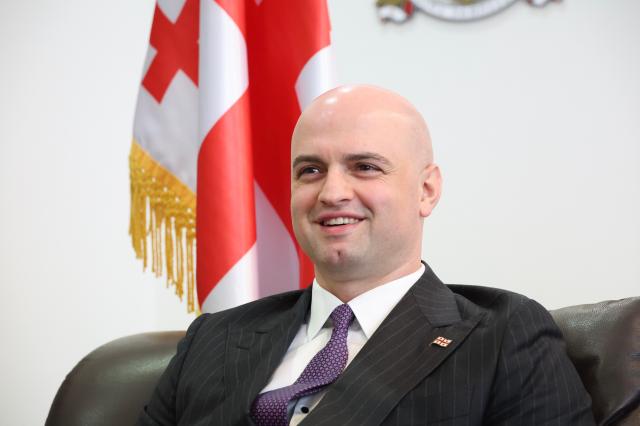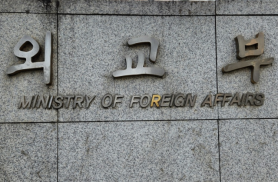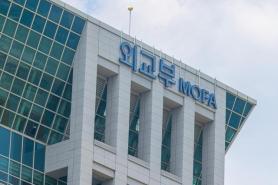
SEOUL, May 23 (AJP) - Georgian Ambassador to South Korea Tarash Papaskua sees the new Economic Partnership Agreement (EPA) between Georgia and South Korea as a turning point in bilateral relations. In an interview with Aju Press on May 19, he described the agreement as a "new generation agreement" and praised the speed and spirit of cooperation behind its conclusion.
"The negotiations on this agreement were concluded in just seven months, from start to finish," he said. "That’s quite fast, and it was only possible thanks to the true spirit of partnership and a fast-track approach from both sides." He expressed gratitude to South Korea’s Ministry of Trade, Industry and Energy, calling the negotiation process "very focused, mobilized and determined."
Described as "FTA+," the EPA eliminates tariffs on nearly all goods while expanding cooperation in renewable energy, e-commerce, environmental sustainability, digital economy, and intellectual property rights. "Essentially, the agreement will provide for a comprehensive institutional framework," the ambassador said. "Almost 95 percent of the goods will be tariff-free."
With legal procedures and translations now underway, the agreement is expected to open new markets for Georgian products in South Korea, such as Kvevri (amber) wines, mineral water, fruits, nuts, and industrial goods. "It shows and demonstrates the willingness of governments to cooperate and to address issues, to facilitate and promote joint ventures," he added.
Georgia is undergoing a long-term economic transition. Once heavily reliant on traditional manufacturing, the country is now shifting toward services, tourism, and information technology. Ambassador Papaskua said this transformation has accelerated since the early 2000s, when the country began comprehensive reforms to modernize institutions, reduce corruption, and create a more open business climate.
As Georgia prepares to celebrate its Independence Day on May 26, the ambassador reflected on the country’s difficult journey to statehood. "On 31 March 1991, 99.08 percent of the population provided an unequivocal, positive answer to the question of restoring independence based on the 1918 declaration," he said.
"Today we continue to still face this challenge of territorial integrity," he noted, referring to Russia’s occupation of Abkhazia and Tskhinvali. "But Georgia has managed to transform into a modern democratic state," Papaskua said, adding: "I would like to express deep gratitude to the Republic of Korea, as well as all our friends and partners for their continued support of Georgia’s territorial integrity and sovereignty within its internationally recognized borders."
With 46 free trade agreements in place, including with the European Union and China, Georgia is positioning itself as a strategic hub between Europe and Asia. "Georgia is at the heart of a dynamic transit and logistics juncture that bridges Europe and Asia," he said, highlighting the country’s access to a 2.3 billion consumer market.
Infrastructure is key to this ambition. Projects include a deep-sea port, a new airport, and a 1,195-kilometer (742 miles) submarine cable under the Black Sea to transmit both renewable energy and data to Europe. "The feasibility studies have been completed," he said, adding that South Korean companies have already been consulted.
Energy cooperation is one of the most promising areas. "If I really would have to choose the most promising sector, that would definitely be energy, especially renewable energy," he said. He also pointed to logistics and advanced technologies as natural fits for South Korean companies. "Georgia has been very open, but we understand that it takes time, in a global environment where you have so much turbulence."
While current trade and investment figures remain limited, Ambassador Papaskua stressed that the potential is far greater. "Current figures, either in trade or investments, are far from the real potential of both economies and this is something that we need to work on."
Tourism is one area where momentum is building. The number of South Korean visitors to Georgia nearly tripled in 2024, and charter flights operated by Hanjin Travel and Korean Air will increase to eight this year. "We are seeing a positive trajectory," he said. Georgia will also participate in the Seoul International Travel Fair in June to further promote itself to South Korean travelers.
The embassy is actively promoting the country’s tourism and culture through events in South Korea. "These events aim to showcase Georgia’s rich culture, history, and unique offerings, strengthening the people-to-people connections between our two nations."
Interest in academic and cultural exchanges is also rising. "South Korea is becoming increasingly popular among young Georgians. They actively learn Korean language and culture, and many are already studying at South Korean universities." Georgian students have received scholarships from the Woojung and Elim Foundations, and several university-level MoUs are being developed.
The embassy is working to establish a Sejong Institute in Tbilisi and hopes to eventually host a formal South Korean Cultural Center. "Even though our countries are far apart, our cultures share many similarities," he said.
From Oct. 22 to 23, Georgia will host the 5th International Tbilisi Silk Road Forum under the theme "Invest in Connectivity – Grow in Stability." The event is expected to draw over 2,000 delegates from more than 60 countries. "Naturally, we hope to see strong participation from such an economic powerhouse as South Korea," Ambassador Papaskua said.
Another sign of growing ties came in November 2024, when South Korea elevated the status of its embassy in Tbilisi. "This is a significant milestone that underscores the strengthening of diplomatic relations between our two countries," he said. "We look forward to deepening political dialogue and economic cooperation, facilitating cultural exchanges and thereby further solidifying our bilateral ties."
Ambassador Papaskua said that his goal is to raise cooperation to a "qualitatively new level." He listed tourism, education, innovation, and cultural exchange as top priorities. "I believe that relations between Georgia and the Republic of Korea will continue to grow stronger," he said. "Both parties are motivated to deepen this value-based partnership in the coming years."
Copyright ⓒ Aju Press All rights reserved.




